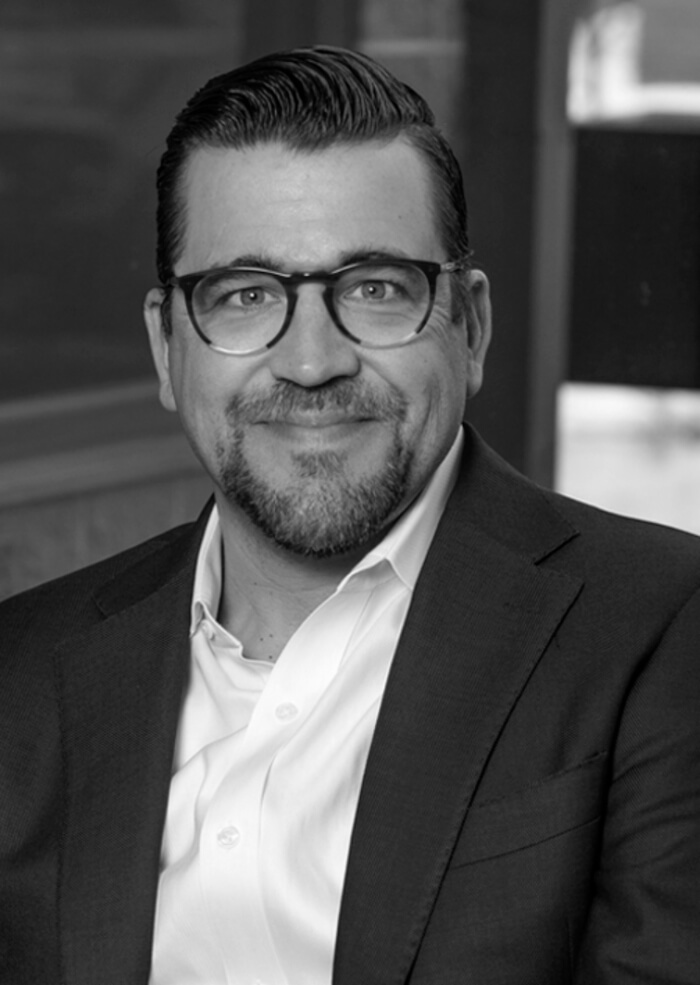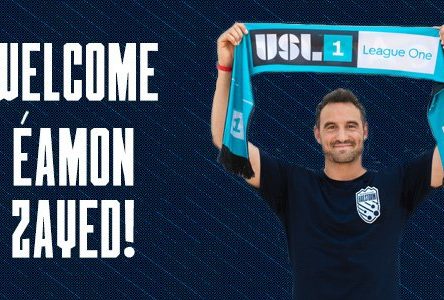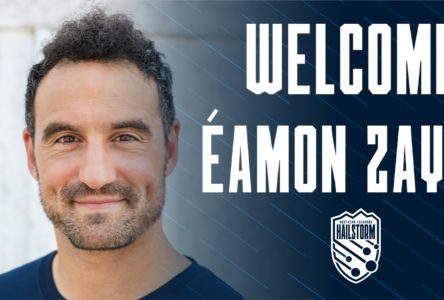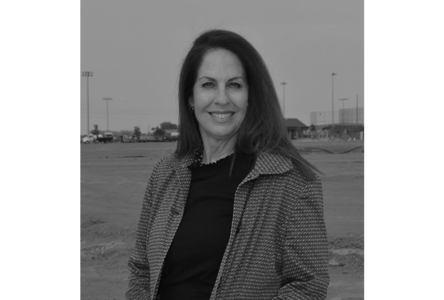
Além International is a global consulting organization based in Lewisville, CO. For 40 years, Além has developed, created, and marketed experiential marketing programs for some of the world’s largest brands. There are 3 business lines at Além. They work on the Olympic Torch Relay with the International Olympic Committee and have since the Atlanta games in the US in 1996. Alem has a corporate side of its business that works with major brands, including Porsche, Land Rover, Jaguar, Delta Airlines, and Yamaha. The third business line is in incentive travel. Alem helps major US brands provide VIP, white-glove experiences for contest winners or people in their organization. Alem develops marketing programs to be taken anywhere in the world and have grand experiences sponsored by those brands. To sum it up, it is Olympic work, corporate branding, and incentive travel.
Ian is the Executive Vice President of Sales and Marketing. He works from customer acquisition all the way through delivery in the field for all of Alem’s clients, brands, and products. Alem currently has offices in Dubai, Colorado, Dallas, Atlanta, and Lausanne, Switzerland.
Q: How does Além International intersect with Future Legends?
A: Além international was approached by Future Legends after they learned about our experiences and development projects around the world. They were specifically interested in our ability to market, provide public relations, and provide commercialization consulting for their project. I know that they were interested in finding a nationally-based commercialization representative for this project. At some point in their search, someone directed them back to Além team in Colorado. I think what allowed us to cement the relationship was us being a hometown team for them. Future Legends could count on his being here in Colorado, but with our national and international Rolodex. Our proximity to the property and our experience in other Colorado events, such as the Democratic National Convention, brought the Future Legends and Além teams to a commonplace.
Q: What is your goal of Future Legends? What do you want to see out of this project?
A: My goal is to think about the end-user while developing this project. In our industry, it is so exciting to imagine people’s faces and the experiences they have at the property, rather than just focus on the profits gained. We at Além see this being a massive draw to the town of Windsor, Weld County, and the state of Colorado. This project has the potential to reach people young and older, locally to the entire United States. We feel that Future Legends is an extraordinary way to highlight our state, county, and town in a really powerful way. Young people will have a positive experience around sport at one of the most beautiful facilities built to date in the U.S. I like thinking about the kid and family who travel to Colorado, get a glimpse of the Rocky Mountains, and get to play a ball game on one of our lovely fields. Also, I am very proud that we are bringing more minor league sports to the state of Colorado. I love minor league sports as inexpensive, family-friendly entertainment around sports. At times the professional journey has become unreachable or unaffordable, but minor league sports provide an opportunity for families to put down their technology and enjoy each other’s company in an outdoor facility. Minor league sports are also an attainable and understandable path for children to look at and think, “If I keep working hard at my sport, I can do this too!” It shows that there is something after youth sports, even if it is not the major league. Those are the two things that I am most proud of with this project.
Q: Do you have a background growing up with sports? What is your connection to the sports industry and how did you choose this career path?
A: I was born and raised in Pittsburgh, PA. We are a proud town related to our sports. (I laugh with Jeff and Casey about how much Future Legends and Além’s partnership is due to my Pittsburgh Steelers lanyard on my car keys in our first meeting). As a Pittsburger, the joke is that you can have different interests from your parents on all sorts of things, but if you don’t cheer for the Pirates, Penguins, and Steelers, then your mom might not feed you. I love sports first because of the town that I grew up in, but I was also an amateur athlete. Now kids are getting focused so much earlier, but I was a multi-sport, multi-season athlete. I was always so excited for the start of football season in the fall, which would roll into hoops in the winter, and then roll into both baseball and soccer in the spring. It was hard for me to squeeze soccer in due to all my other sports, but I made it work. I played sports in high school, and I still get to play sports today. I play on an adult soccer team today in my community. I am a professional sports fan, and my children are growing up with sports (they are Steelers fans). I married a woman from Detroit who loves Detroit sports, so we are constantly negotiating what sports teams the kids get to cheer for in different leagues. Sports have always been important in my life.
Q: What excites you most about Future Legends?
A: The most exciting thing about Future Legends for me is going to be when I am experiencing the first major, full-to-capacity tournament weekend. I cannot wait to see our hotels filled, our dormitory with 900 kids in it, and our 12 baseball fields going simultaneously. Also, the retail area with kids flowing straight from their games to get ice cream and back. That’s what is going to be the most exciting thing for me, seeing the place on its first big tournament weekend.
Q: What has been the most satisfying part of the process of working on Future Legends for you?
A: The most satisfying part of this process so far has been the way that we pulled together numerous contractors from different professional spheres to support this project, and how quickly we put the messaging that we all learn from one another on the street. I have never been part of an organizational development group that had financial, real estate, commercialization, globalization, and youth sports experts in one productive meeting with builders and contractors. It is exciting because even in a challenging time like this, we have gotten this group together and the work that we’re putting out has allowed this project to continue right along. I’d be remiss to not include that those meetings include community leaders from the town and county. We have a true public-private partnership in this project.
Q: What makes Future Legends different from most facilities?
A: Future Legends is different for many reasons. First, it is a high-altitude facility. I think it is going to attract athletes who have never had the experience to play at altitude. It’s a big deal! Second, the location is unique. It is only 45 minutes away from a major airport that services the entire country and international destinations. Third, northern Colorado is an incredible host site. It is absolutely beautiful and is growing like crazy. Fourth, we are also only an hour and a half away from Rocky Mountain National Park as well as Vail and their resorts and properties. The tourism opportunities in Denver, Boulder, Colorado Springs (with the Olympic offices and museum) allows this to be a true sports tourism destination. There are endless opportunities for guests to come out and experience what it is like to be in the Rocky Mountains. Lastly, and my favorite difference, is the view. Come out to our property and look west to see the Rockies. The view is something that you cannot forget.
Q: Who is your sports hero and why?
A: My sports hero from the more modern era is Mario Lemieux. He was brought to Pittsburgh as a phenom teenager. Lemieux was taken out of his Canadian background, barely spoke the language, and he came in and took the Penguins and the town of Pittsburgh completely under his wing. He turned our franchise into a winner. What he did in the community around our city, building fans, athletes, and creating a culture around hockey, will never be forgotten. Then, the team has numerous financial troubles and he snatches the team from the ashes and not only buys the team but then figures out how, when other cities were begging for the Penguins and offering to build them stadiums, to get the town behind him to build that stadium and stay in Pittsburgh. He gave back to the sport the same way they gave back to him by bringing Sidney Crosby into the organization and letting him live in his own house, the same way people took him in when he was a kid. Now he has gone on to build our town and franchise, continued to build the business of hockey, create that beautiful building in the middle of the city, and does it all with a smile through good and bad health, and thick and thin times financially. That’s a true American sports story and why I like the guy so much.
Written by: Ashley Kavanagh




